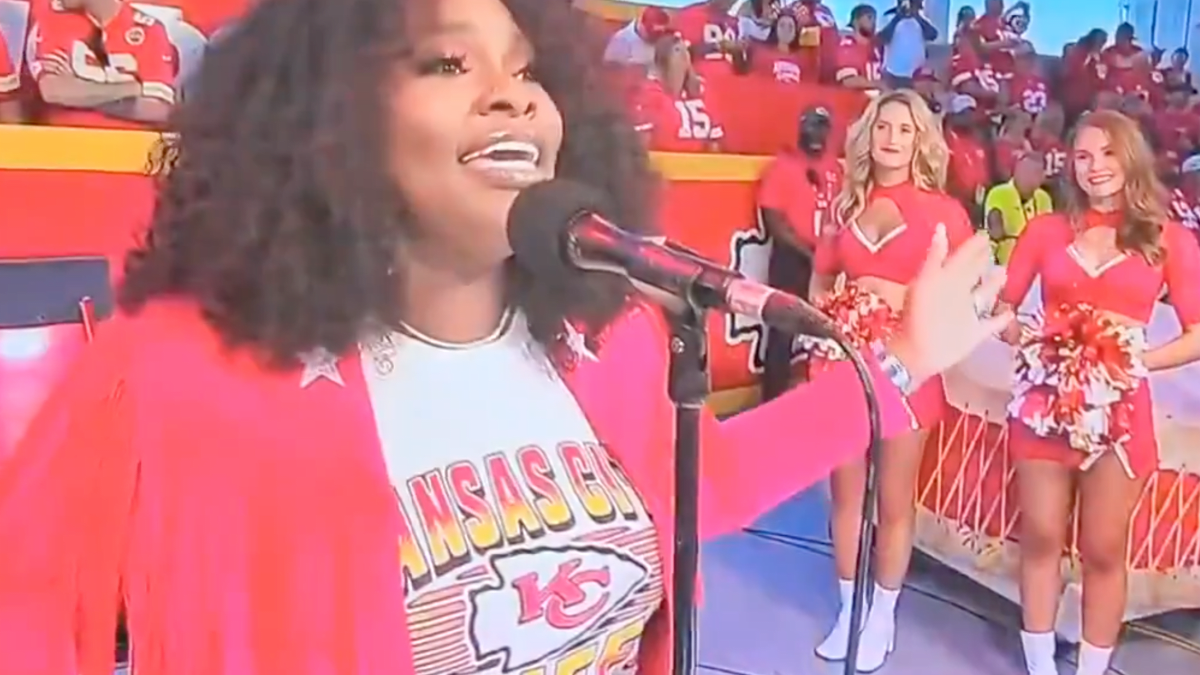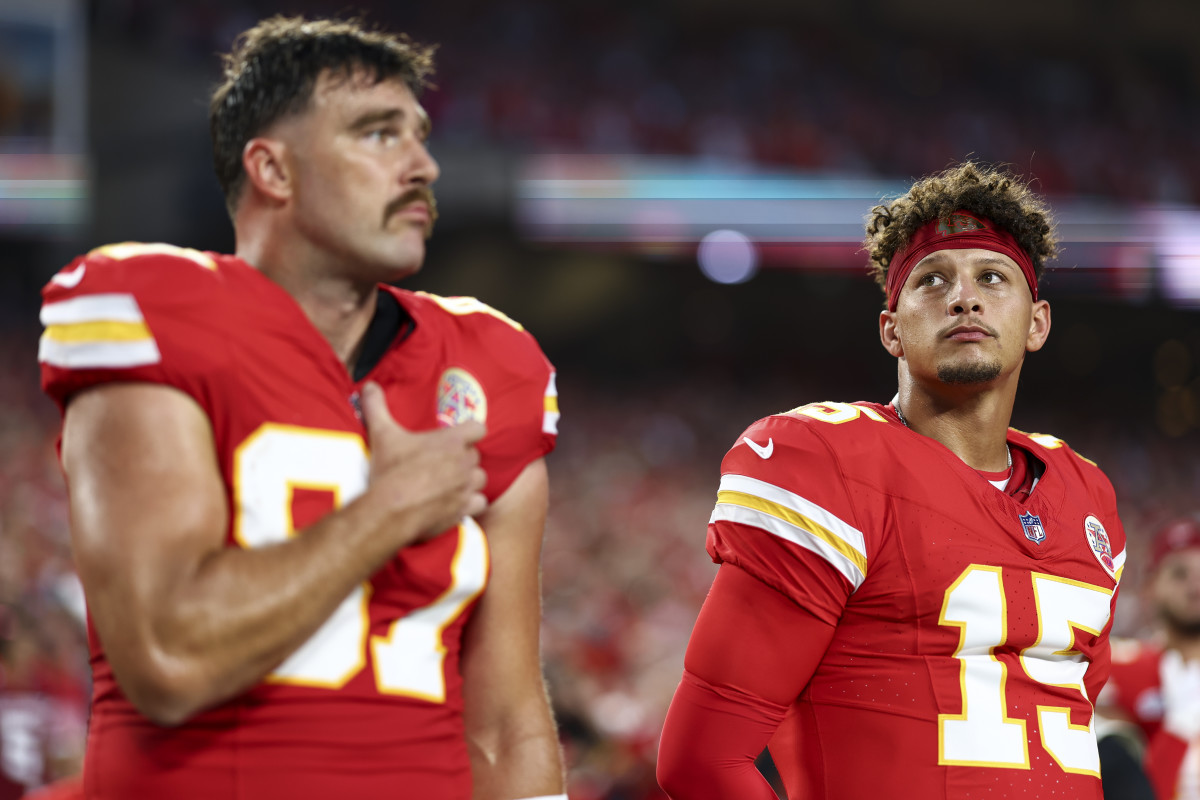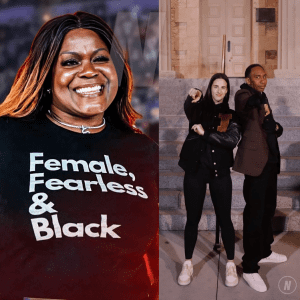The rendition of “Lift Every Voice and Sing” by Tasha Cobbs at Arrowhead Stadium prior to the Chiefs-Ravens game once again ignited debate over the song’s inclusion in pregame ceremonies. Known as the “Black national anthem,” the song has been part of the NFL’s Week 1 opening festivities for several seasons.
However, its performance continues to provoke controversy, sparking both support and criticism across social media and public platforms. This ongoing discussion centers on the symbolic significance of the song, its place in American sports culture, and the broader question of how America navigates its complex national identity.
**Historical Context of “Lift Every Voice and Sing”**
Before delving into the contemporary debate, it’s crucial to understand the historical context of “Lift Every Voice and Sing.” Originally written as a poem by James Weldon Johnson in 1900 and later set to music by his brother John Rosamond Johnson, the song was first performed in 1900 in celebration of Abraham Lincoln’s birthday.
Over the years, it became a cherished anthem within African American communities, particularly during the Civil Rights Movement, symbolizing resilience, hope, and the ongoing struggle for equality.

That is, of course, your right and their right. At the same time, the numbers are in.
The NAACP officially designated the song as the “Negro National Anthem” in the 1920s, solidifying its place in Black American culture. For many, “Lift Every Voice and Sing” represents not only a tribute to Black history and struggles for freedom but also an enduring call for unity and justice.
It’s a song deeply rooted in the Black experience, reflective of the ongoing pursuit of equality, dignity, and recognition in American society.
**The NFL’s Inclusion of the Anthem**
The NFL’s decision to incorporate “Lift Every Voice and Sing” into pregame ceremonies, particularly during Week 1, began in the 2020 season, following the murder of George Floyd and the nationwide protests for racial justice.
The inclusion of the song was seen as part of the league’s broader efforts to acknowledge social justice issues and show solidarity with the Black Lives Matter movement. The decision came alongside other initiatives such as players wearing decals with the names of victims of police violence and the NFL pledging financial resources to social justice causes.
For many supporters, this was a significant step in acknowledging the contributions, struggles, and history of Black Americans, especially in a league where nearly 70% of the players are Black. Including “Lift Every Voice and Sing” was not just seen as a nod to Black culture but as a symbolic gesture toward racial unity and healing.
However, despite the positive intentions behind its inclusion, the decision has been met with mixed reactions, particularly from segments of the fan base who view the song’s presence as divisive.
**Criticism and Backlash**
Tasha Cobbs’ rendition of “Lift Every Voice and Sing” at Arrowhead Stadium reignited a familiar backlash. Many on social media expressed their disapproval, with some calling for a boycott of NFL games altogether.
The core argument among critics centers on the belief that America should only have one national anthem: “The Star-Spangled Banner.” For these individuals, the inclusion of “Lift Every Voice and Sing” is viewed as an unnecessary addition that complicates or fragments the unity represented by a single national anthem.
Critics argue that having two anthems creates division and that the focus should be on a singular representation of American identity and patriotism.

Some even interpret the performance of the song as catering to political correctness or as part of a broader “culture war,” with claims that it diminishes the importance of “The Star-Spangled Banner.” These views are often accompanied by a broader discomfort with the increasing incorporation of discussions about race and social justice into sports.
Several commentators expressed their frustration online, with statements such as “I will only stand for one national anthem,” reflecting a resistance to the idea that “Lift Every Voice and Sing” deserves the same stage as “The Star-Spangled Banner.”
This backlash, though vocal on platforms like Twitter and Instagram, mirrors a recurring debate about the role of sports as a space for political and social expression.
**The Ongoing Debate: Unity vs. Division**
At the heart of this controversy is the broader question of what it means to be an American and how the country’s history, particularly the legacy of slavery and racism, is recognized or reconciled.
For supporters of “Lift Every Voice and Sing,” the song’s inclusion is a way of acknowledging the complexities of American history and the experiences of Black Americans, without erasing the collective national identity.
For them, the song is not meant to replace “The Star-Spangled Banner” but to exist alongside it, representing the diverse voices that make up the fabric of the nation.
On the other hand, critics argue that the performance of multiple anthems undermines the unity that a single national anthem represents. They assert that sports, particularly national leagues like the NFL, should be a space that brings people together, and that introducing songs tied to specific racial or ethnic experiences could lead to further divisions.
These critics worry that the inclusion of “Lift Every Voice and Sing” may set a precedent for other anthems or songs that represent different groups, diluting the unifying power of “The Star-Spangled Banner.”
This debate is emblematic of broader societal tensions regarding race, identity, and the role of national symbols. For many, the discussion is less about the song itself and more about what it represents: a struggle to find common ground in a nation where history and identity are often contested.
**The NFL’s Role and the Future of the Anthem Debate**
Despite the vocal backlash on social media, the NFL’s Week 1 games traditionally draw massive viewership, and there is little evidence to suggest that the online protests significantly impact overall ratings. The NFL remains one of the most popular and widely watched sports leagues in the United States, with fans from diverse backgrounds tuning in each week.
Nevertheless, the league finds itself navigating a complex landscape. On the one hand, it must acknowledge and address the concerns of fans who feel alienated by the inclusion of “Lift Every Voice and Sing.” On the other hand, it also has a responsibility to its players, many of whom have advocated for greater recognition of racial justice issues. Balancing these competing interests is no easy task, and the NFL will likely continue to face scrutiny as it evolves its approach to social justice initiatives and pregame ceremonies.
As America grapples with its history and identity, the role of national symbols like anthems will remain a point of contention. For some, “Lift Every Voice and Sing” represents progress—a recognition of the diversity and richness of the American experience. For others, it is a reminder of the divisions that still exist within the country. Regardless of where one stands on the issue, the debate over the song’s place in American sports is far from over.




